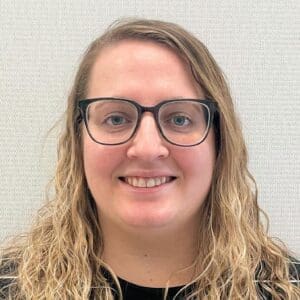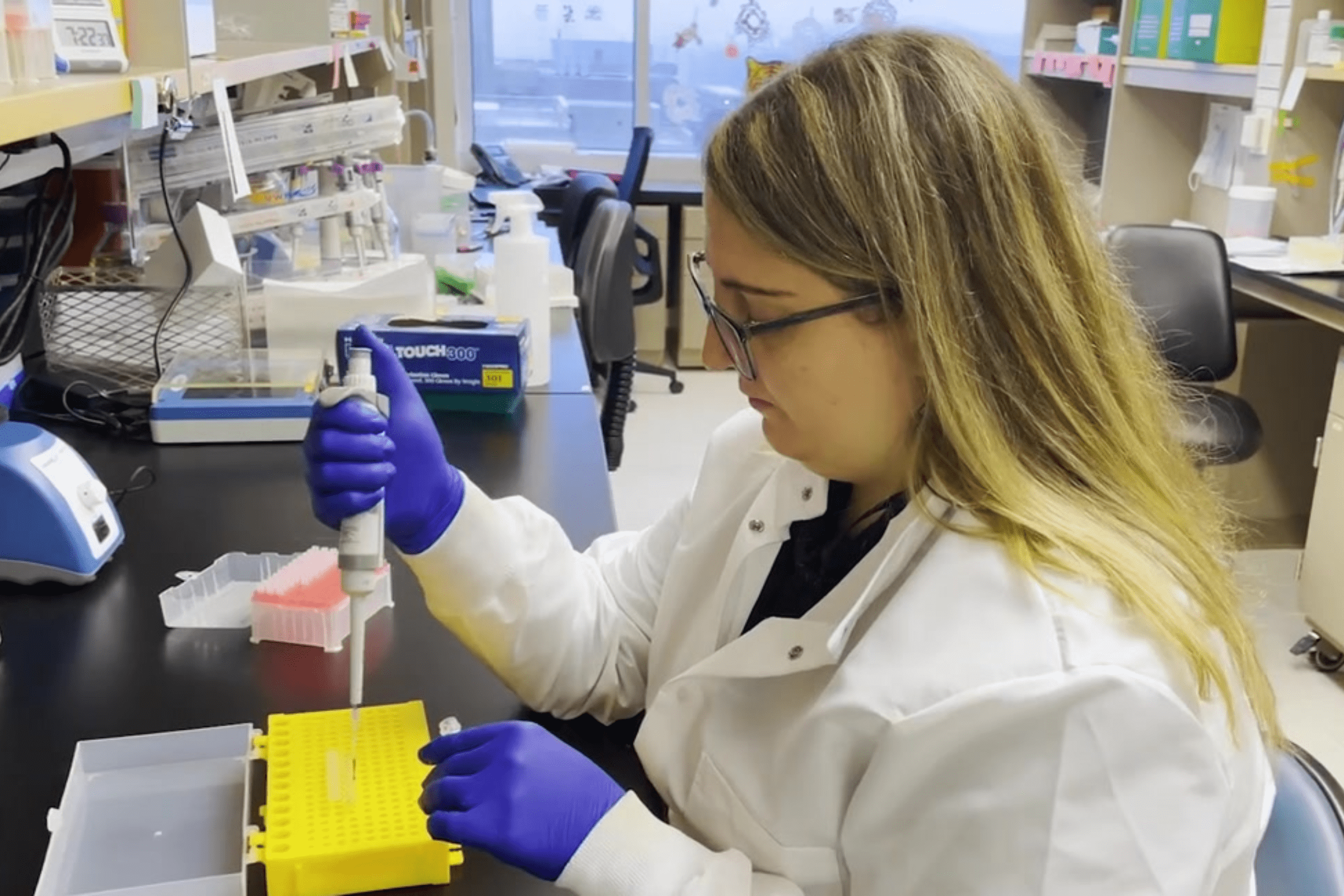
Dr. Jenna Guthmiller, 2022 Michelson Prize Laureate
Dedicated to improving vaccines and training the next generation of scientists, Dr. Jenna Guthmiller’s research focuses on universal influenza vaccines and earns her a 2022 Michelson Prize.
Jenna Guthmiller first learned about immunology growing up on her family’s dairy farm, where her parents showed her the importance of vaccines to an animal’s health. “The idea that a dead or weakened version of a pathogen could provide protection against something that would otherwise make the animals sick was fascinating to me,” says Guthmiller.
Dr. Guthmiller, an Assistant Professor in the Department of Immunology & Microbiology at the University of Colorado Anschutz School of Medicine, credits this formative experience with sparking her initial interest in immunology, even if the thought of a career in the field came much later. “I didn’t decide to become a scientist until my last year of college,” she said. “I grew up in a very small town, and I didn’t understand what a scientist even was or that it was a career path that was open to me.”
Following encouragement and guidance from college professors, Guthmiller would go on to earn a Ph.D. in Immunology and Microbiology before completing postdoctoral training at the University of Chicago. Her work is now focused on developing a framework that will improve mucosal vaccine design and ultimately lead to universal influenza vaccines—treatments that could potentially provide broad protection against circulating and emerging influenza viruses.
Thanks to her research into limiting infectious disease burdens, Dr. Guthmiller has been selected as one of the 2022 Michelson Prizes: Next Generation grant recipients. The $150,000 grant will allow Guthmiller to significantly further our understanding of protective immunity.
Her successful grant proposal involves mapping the preexisting human B cell repertoire within the lymph nodes of the upper and lower respiratory tract that bind and respond to next-generation influenza vaccines. By dissecting how immunity differs within the upper and lower tract, as well as within the blood, Guthmiller’s research could optimize vaccine efficacy. The grant, which is given annually to investigators 35 or younger who are focused on human immunology, vaccine discovery, and immunotherapy, will support new discoveries while building on existing findings.
“The Michelson Prize allows me to expand our research into the field of mucosal immunology, which will undoubtedly lead to new research directions within my laboratory,” Guthmiller explained. “As is, our current understanding of mucosal antibody specificities against respiratory pathogens in humans is limited. This prize allows us to use the tools already in my lab to study humoral immunity against influenza viruses at the site of infection.”
With much of her research focused on improving vaccines and delivering widespread protection against emerging influenza viruses, Guthmiller’s scientific goal is clear, “My main motivation as a scientist is to improve vaccines to prevent the next pandemic, which includes a comprehensive knowledge of how humans and animals, which often serve as sources of viral spillover, generate protective immunity.”
On the surface, Guthmiller’s motivation can be traced directly back to her early days on the family dairy farm and witnessing, first-hand, how vaccination can prevent disease. However, the influence of her college professors reveals another goal. “My other main motivation is to train the next generation of scientists,” says Guthmiller. “My career in science is due to my prior mentors and I hope to instill a passion for science within the next generation of scientists.”
Learn more about the 2022 Michelson Prize recipients here.



